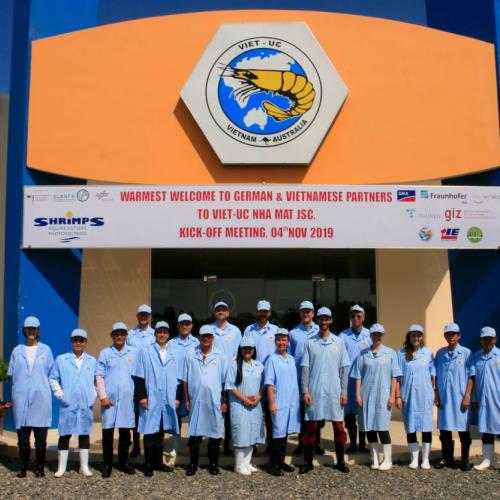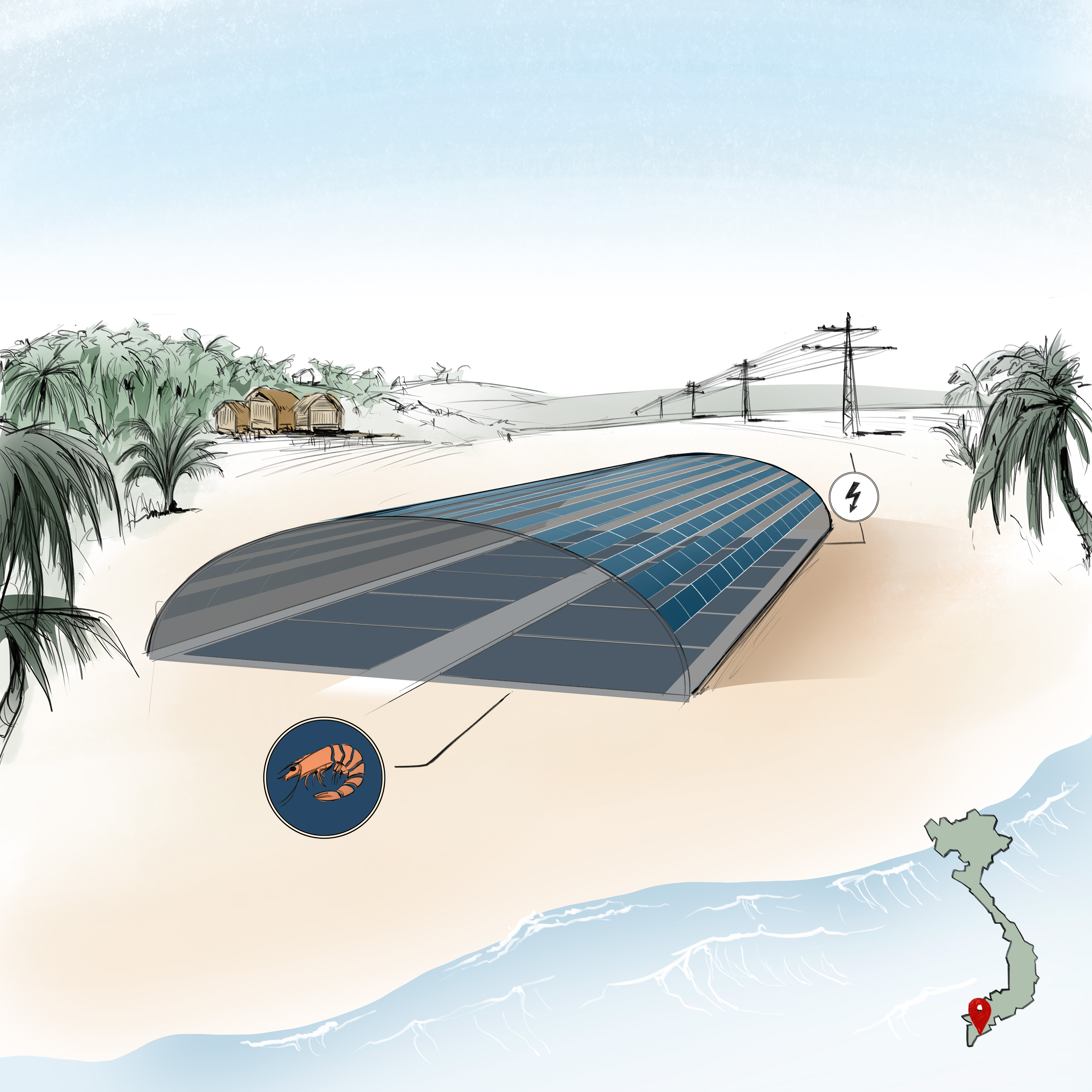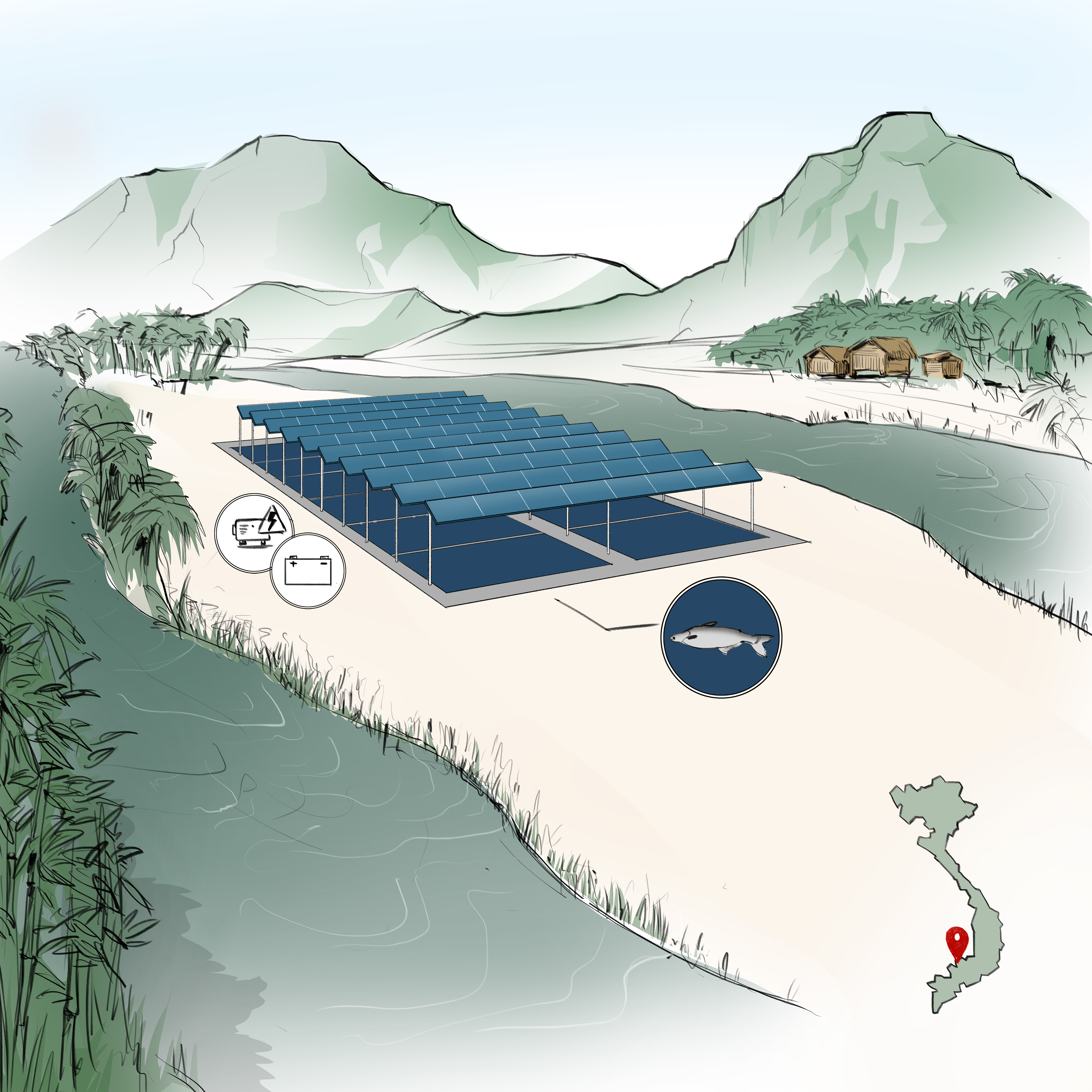SHRIMPS project launch

Coordinator: Fraunhofer-Institut für Solare Energiesysteme ISE
Contact Person: Max Trommsdorff
Address: Heidenhofstraße 2, 79100 Freiburg
Phone: 0761 4588 2249
Email: maximilian.trommsdorff(at)ise.fraunhofer.de
Project partners in Germany
Project partners in Vietnam:
Throughout the world – and particularly in Vietnam – land scarcity is becoming an increasingly urgent matter. Population growth and economic growth per capita are key drivers that both increase the use of land areas to meet the rising demand for food and energy. A cooperation between German and Vietnamese partners, the SHRIMPS project aims to verify the technical and economic feasibility of dual land use for solar power generation and aquaculture in fish and shrimp farming.
The project aims to verify the technical and economic feasibility of dual land use for solar power generation and aquaculture in fish and shrimp farming. In cooperation with local pangasius and shrimp farmers, the project partners will investigate synergies and interactions between both levels, using an interdisciplinary approach. Taking innovative and shade-tolerant breeding methods for pangasius and shrimp as their starting point, the researchers and industrial partners from Vietnam and Germany have developed a concept for an integrated, ecologically and economically sustainable system that combines aquaculture and photovoltaics and promotes the expansion of renewable energies without taking up additional land.
The SHRIMPS project aims to find a solution for some of the challenges linked to the increase in pangasius and shrimp farming. These challenges include the impact of additional land use, the deforestation of mangrove forests, antibiotic and fodder residue as well as other pollutants on local ecosystems – particularly with regard to ground and surface water management. Due to the rising pollution of surface water, the Mekong region increasingly uses groundwater in shrimp farming; when combined with the water extracted for domestic and agricultural purposes, this leads to constant land subsidence.

One strategy to ease the pressure placed on land as a resource is to double the use of land to generate food and energy. The aquavoltaics system technology (AquaPV) enables electricity to be generated and shrimp/pangasius to be bred in the exact same area, and thus significantly increases overall productivity per unit area compared to conventional land use.
What makes AquaPV so innovative is that its photovoltaic modules are installed at an optimized height and with optimized alignment above the ponds used to breed pangasius and shrimp. The system combines technology for generating electricity with the innovative Biofloc shrimp-farming method. Using just a single technology results in several advantages:
The SHRIMPS project will have three phases: To investigate interaction effects and identify the potential challenges and opportunities of this technology, the project partners will research the most promising production technologies during Phase I and create a concept for the following project phases based on those results. Once the preparatory research activities and conceptual developments of Phase I have been completed, the project partners, headed by SMA Sunbelt, will install pilot plants at the facility sites of Viet-Uc in the An Giang province as well as in the Nha Mat district of Bac Lieu, and will conduct all necessary preparations. During Phase III, they will initially monitor the two prototypes to ensure that the constructed plants work reliably and can be used in Vietnam and other countries as a reference for the industry.

With regard to the planned distribution of the AquaPV systems, Fraunhofer ISE, Suntrace and the local partners in the Mekong region are aiming to launch the technology for small and mid-sized agricultural companies. SHRIMPS is a promising project balancing research-based development and active participation of the private sector – as such, it has good chances of being able to use the research results as part of a commercially viable market launch. The project results will be published in relevant journals. In addition to the dissemination workshops, the project partners will send out communications on the project via their communications departments.
